Complete Solutions to EXERCISES of chapter ALKENES AND ALKADIENES of Class 11 book with complete answers and questions
| Class 11 | CHEMISTRY |
| Chapter | ALKENES AND ALKADIENES |
| CENGAGE CHEMISTRY | EXERCISES |
| Number Of Questions | 29 |
| Academic Year | 2023-24 |
Identify `(A)` to `(G)`
Alkene `(A)` and Alkene `(B) overset(Dil. H_(2)SO_(4))rarr` Sme alcohol `(C)`

View Solution`0.037gm` of an alcohol was added to `CH_(3)Mgl` and the gas evolved measured `11.2ml` at `STP`. What is the molecular weight of the alcohol ?
Identify `(A)` to `(E)`.

View SolutionIdentify `(A)` to `(H)`.
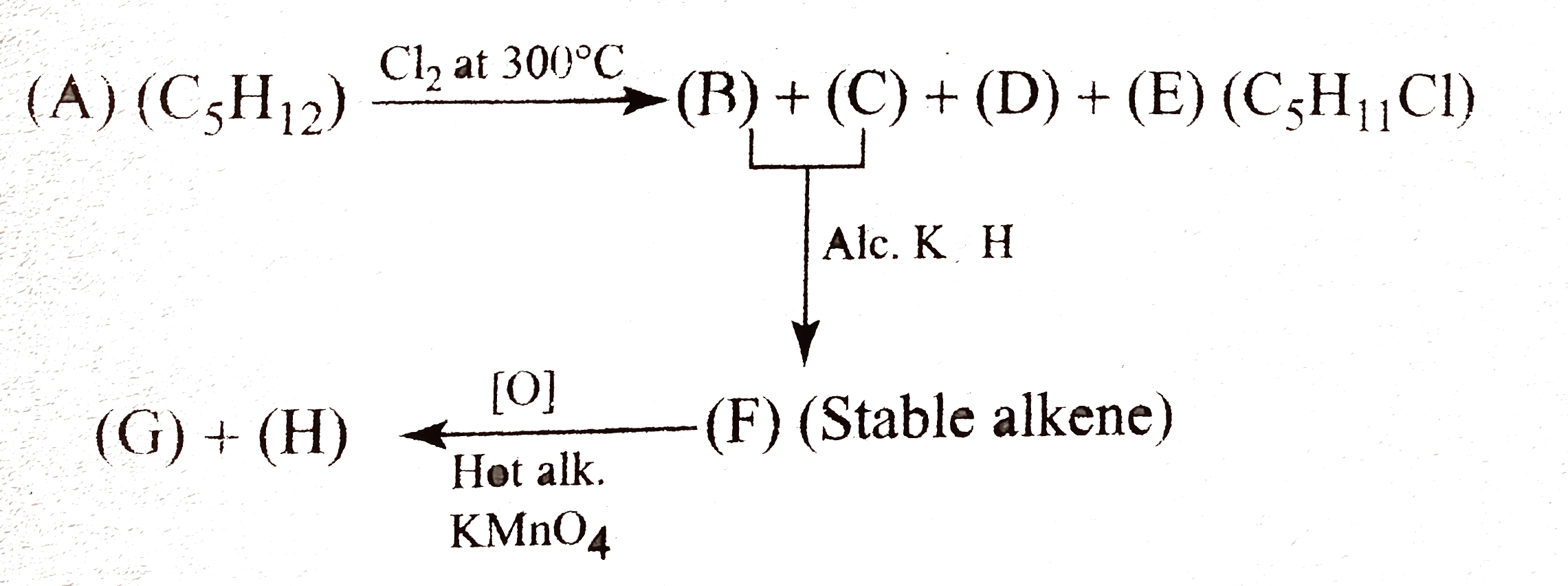
View SolutionIdentify `(A)` to `(C)`.
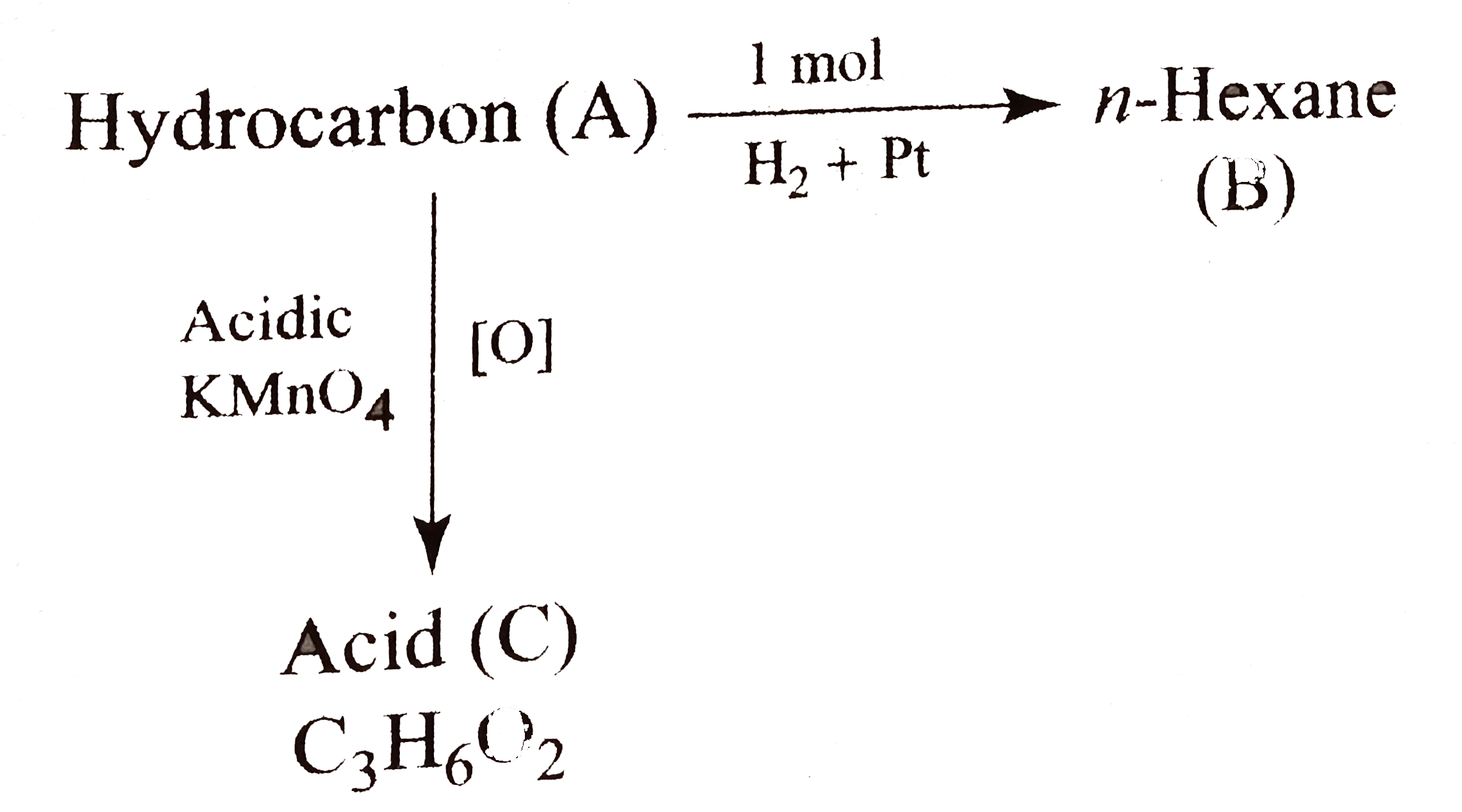
View Solution`(A)(C_(10)H_(16))overset(Reductive or o x idative)underset(ozonolysis)rarr(B)(C_(5)H_(8)O)`
`(A)` reacts with one equivalent of `H_(2)//Pd`
`a.` Both `(A)` and `(B)` are resolvable.
b. Both `(A)` and `(B)` are irresolvable.
c. (B) is resolvable but `(A)` is not.
View Solution`(A)(C_(10)H_(16))overset(Reductive ozonolysis)rarr(B)(C_(5)H_(8)O)`
` overset(O x i dation ozonolysis)rarr(C)(C_(5)H_(8)O_(2))`
`(A)` reacts with one equivalent of `H_(2)//Pd`.
Give all the possible structures of `(A),(B)` , and `(C)` if all of them are non`-` resolvable.
View SolutionIdentify `(A)` to `(G)`
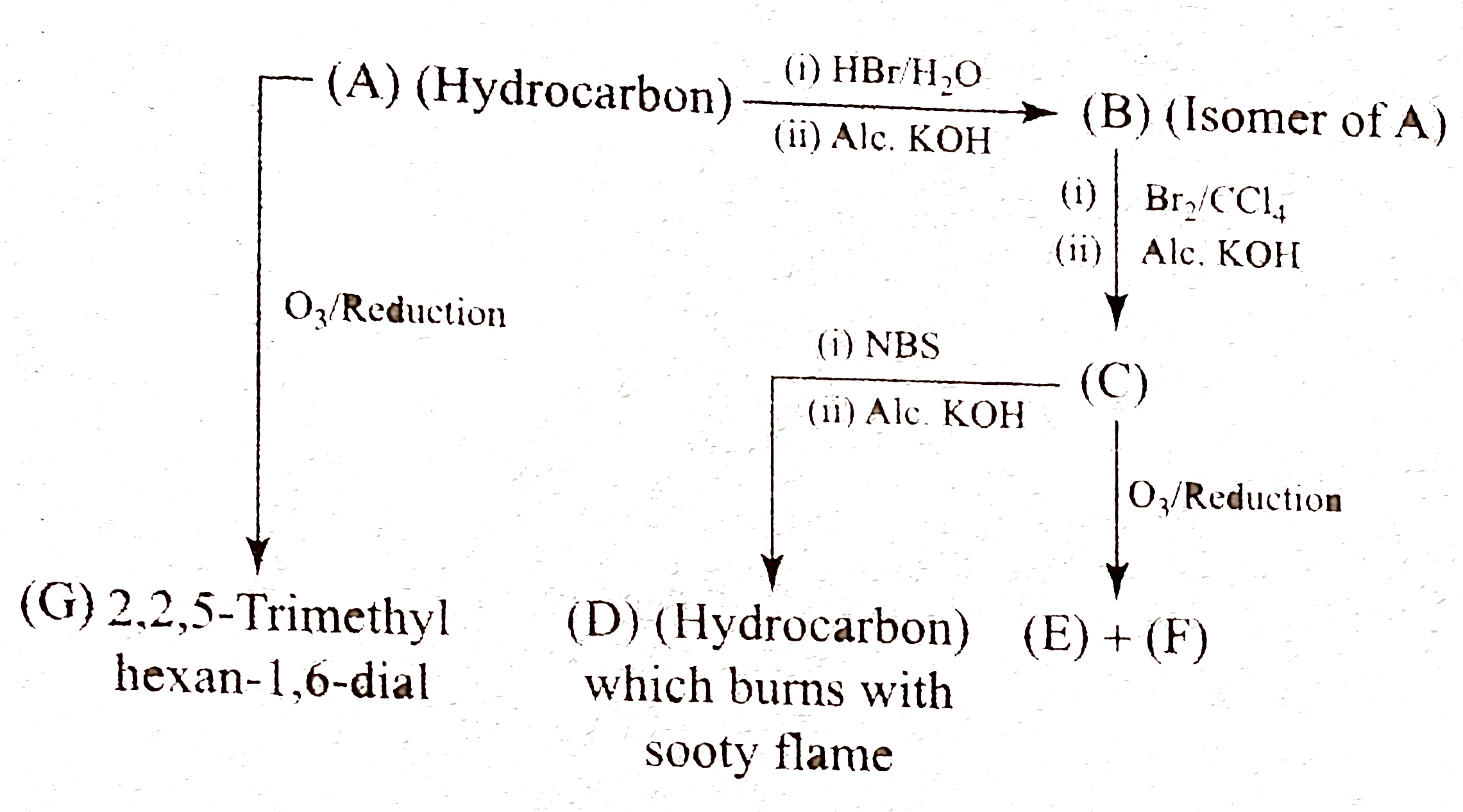
View SolutionExplain why neither of the following compounds undergoes Diels `-` Alder reaction with dienophile `(e.g.` maleic anhydride`).`
`a.` `HC-=C-C-=CH`
`b.`
`c.`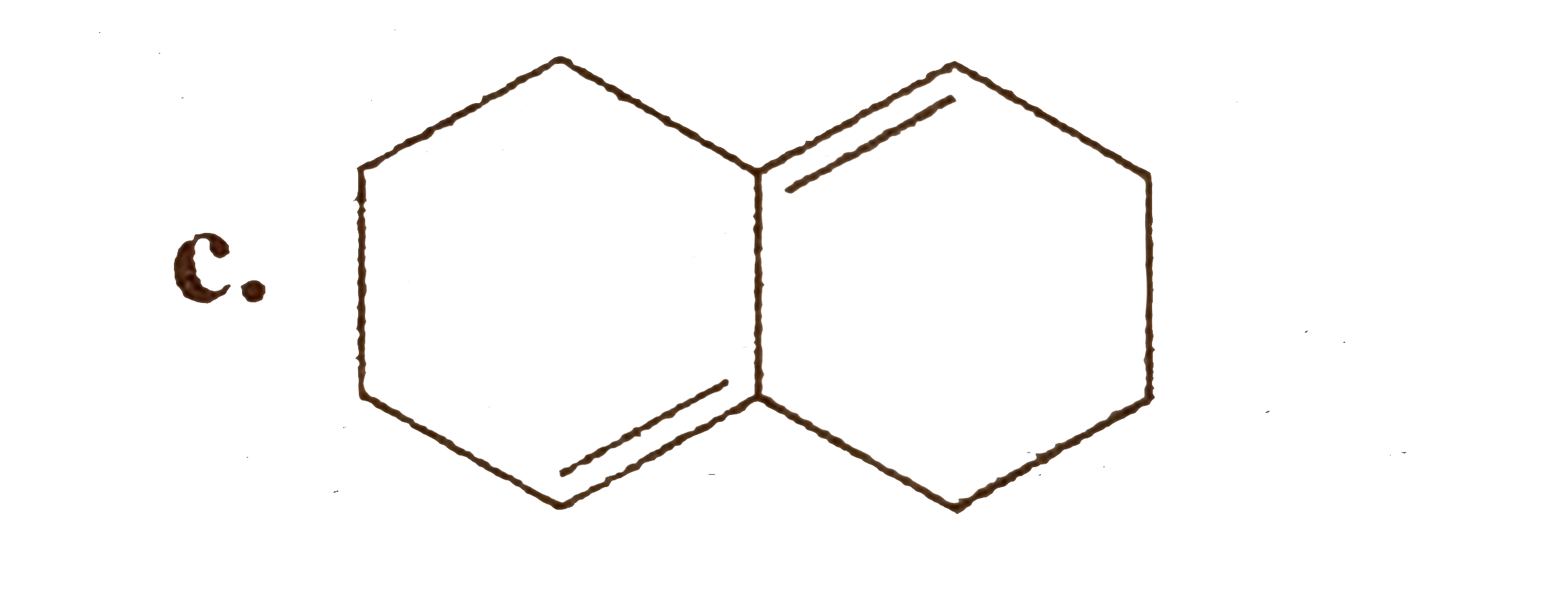
View SolutionComplete the following Deils `-` Alder reactions.
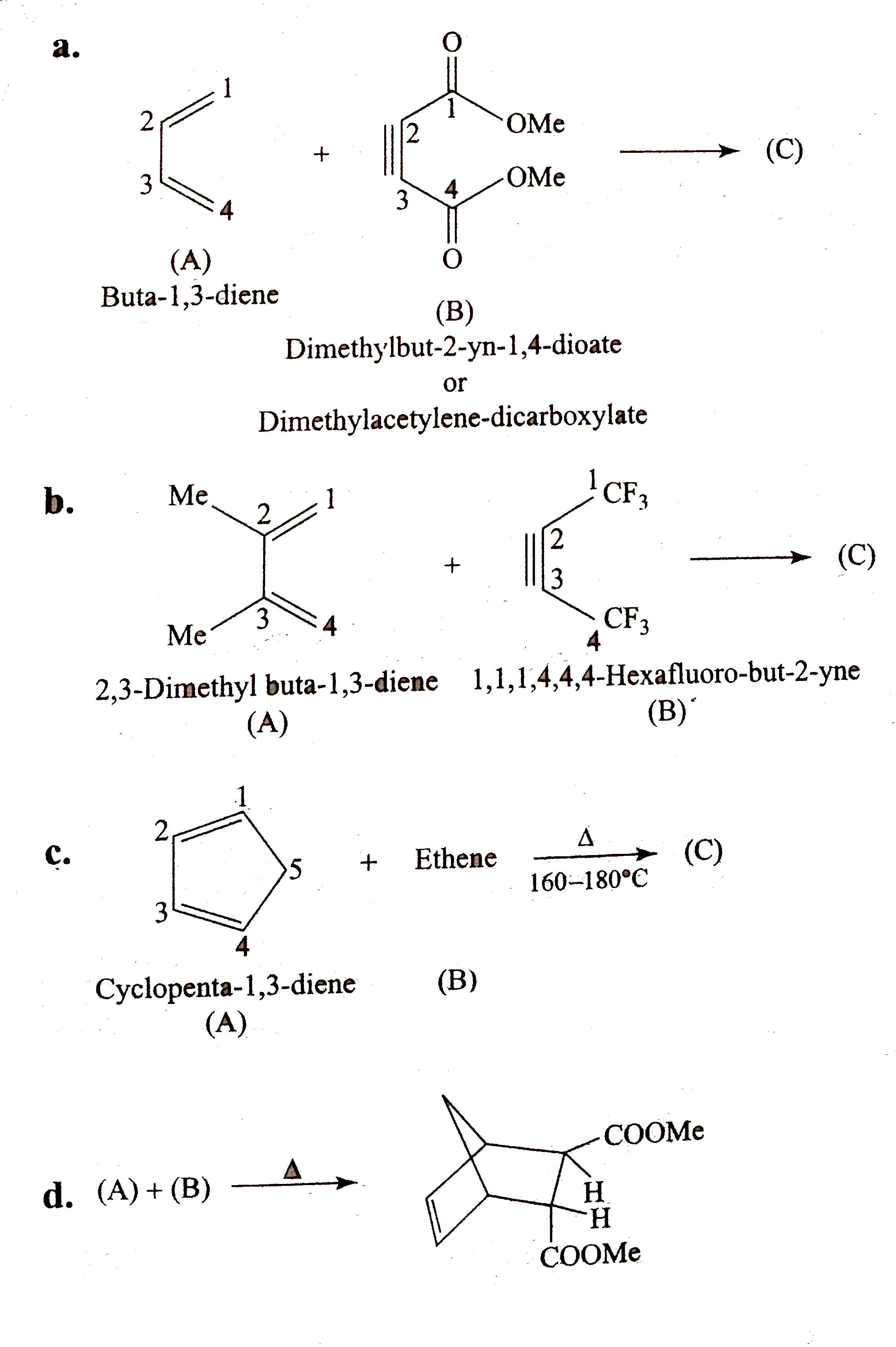
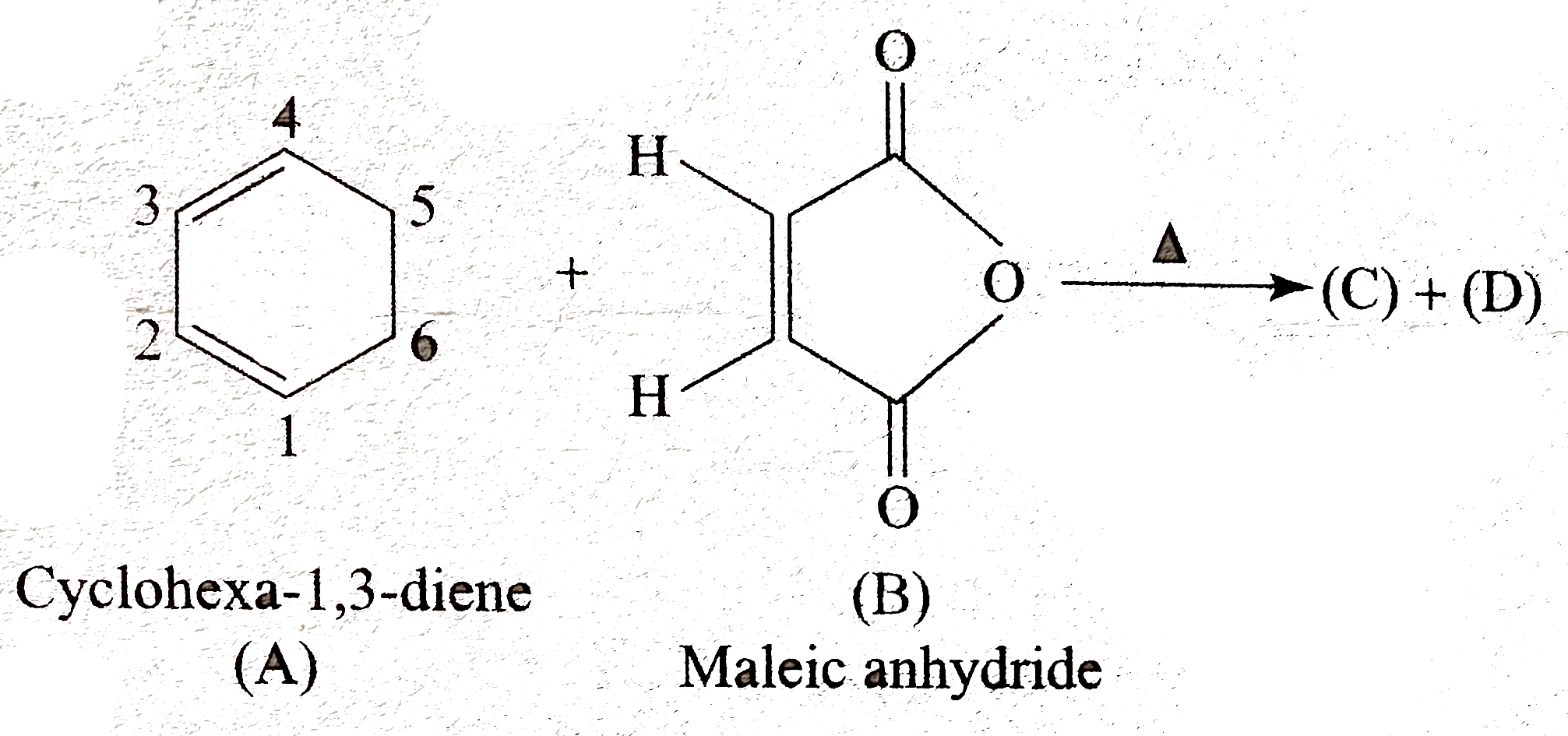
View SolutionIdentify `(A)` to `(I)`
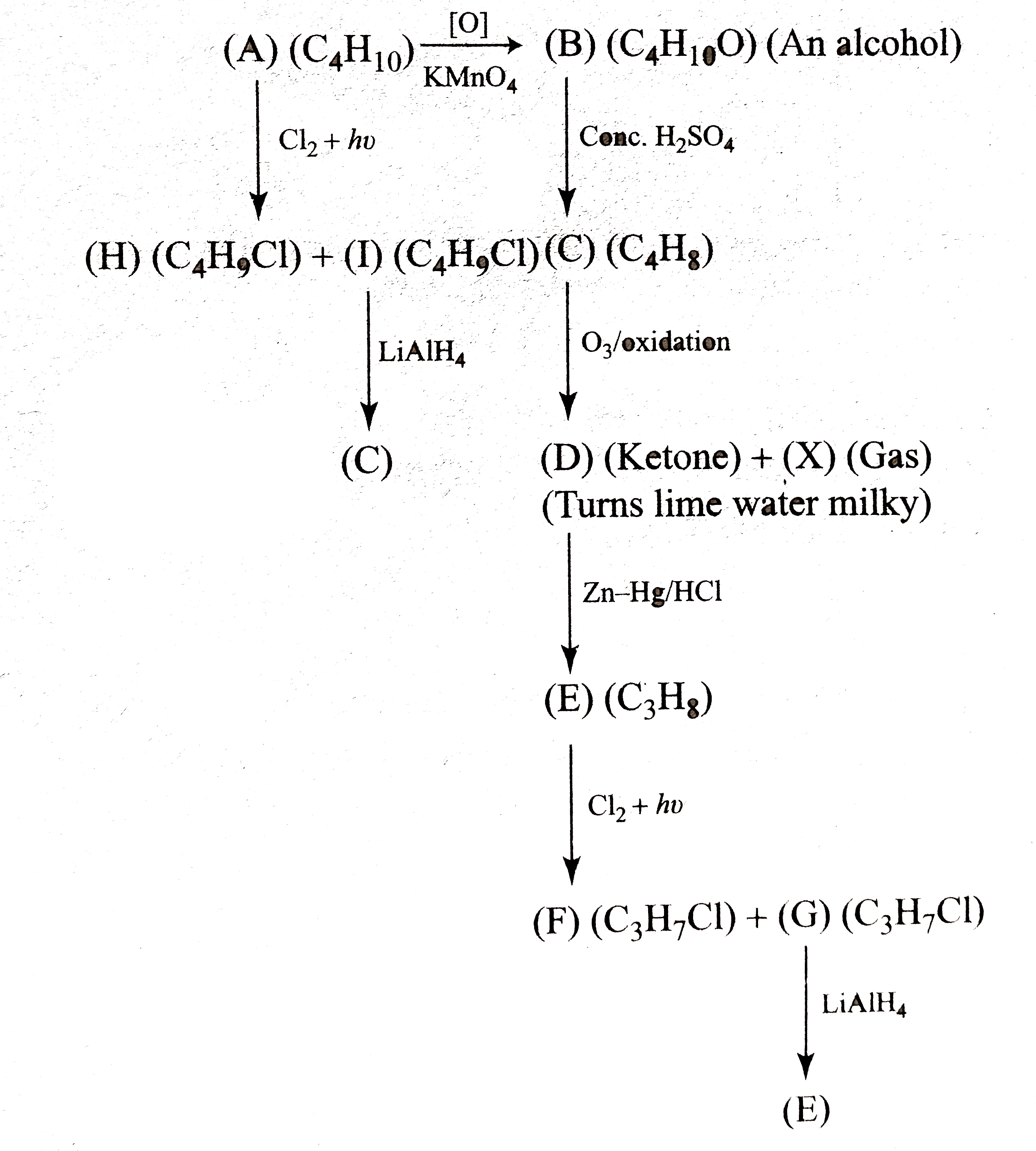
View SolutionIdentify `(A)` to `(F)` .
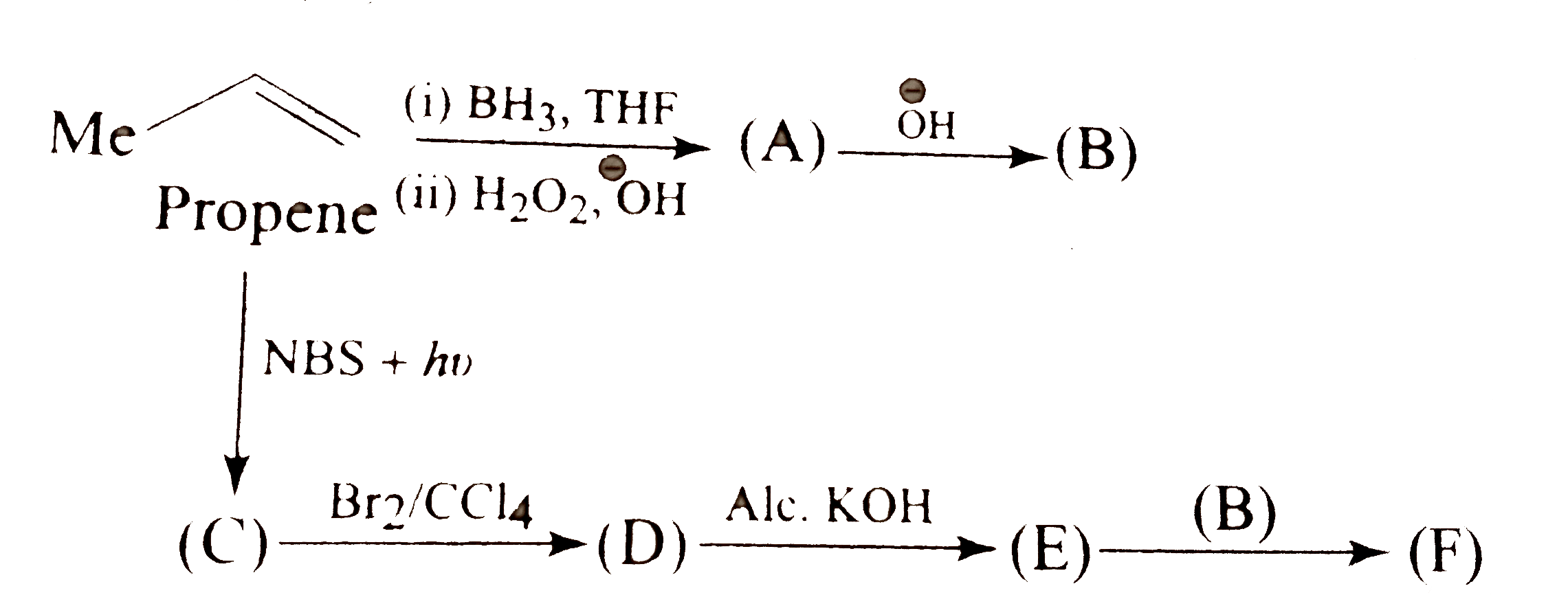
View SolutionGive the major product and mechanism involved in the following reaction.
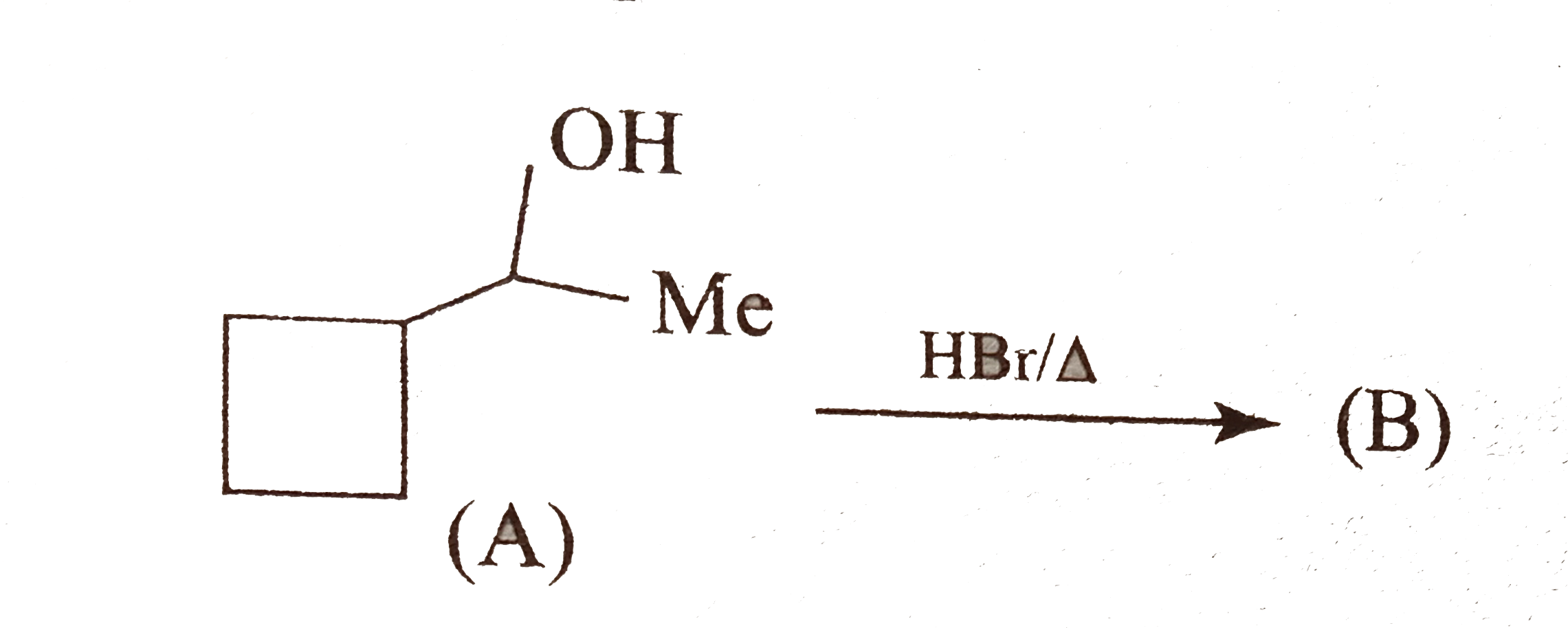
View SolutionIdentify `(A)` to `(C).`

View SolutionIdentify `(C)`.
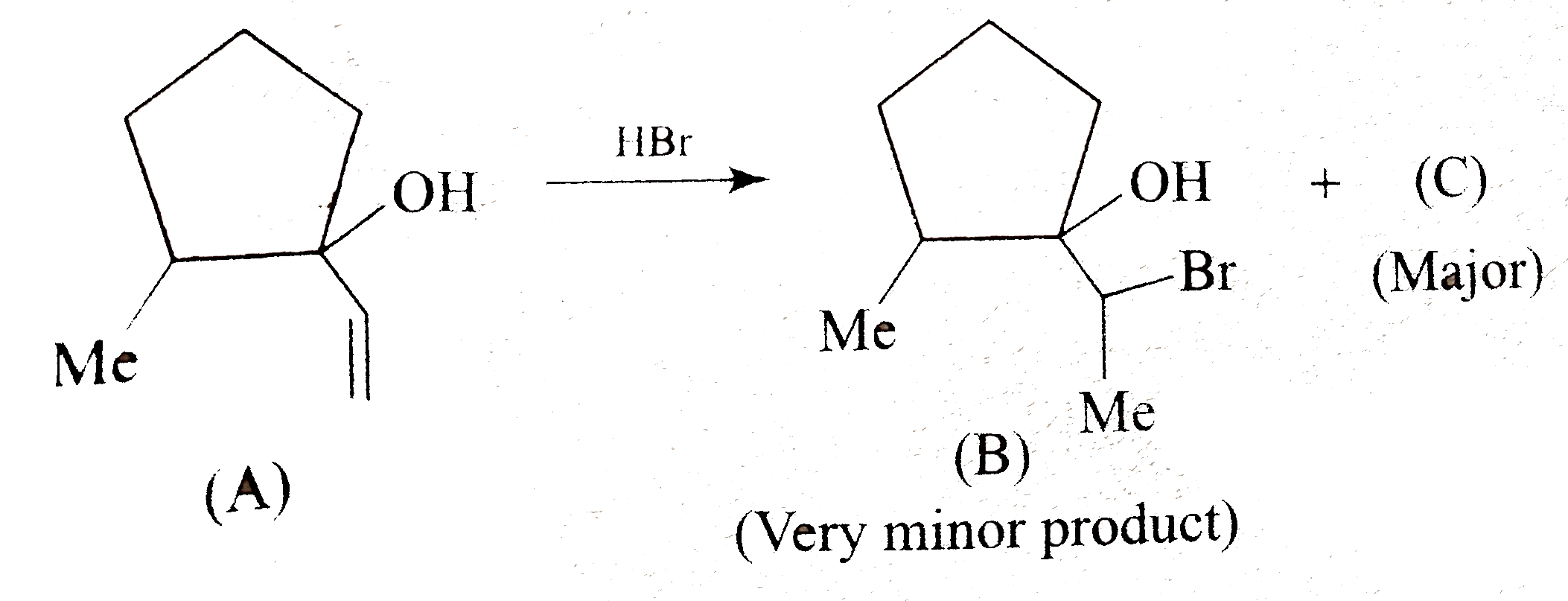
View SolutionExplain the following reaction .
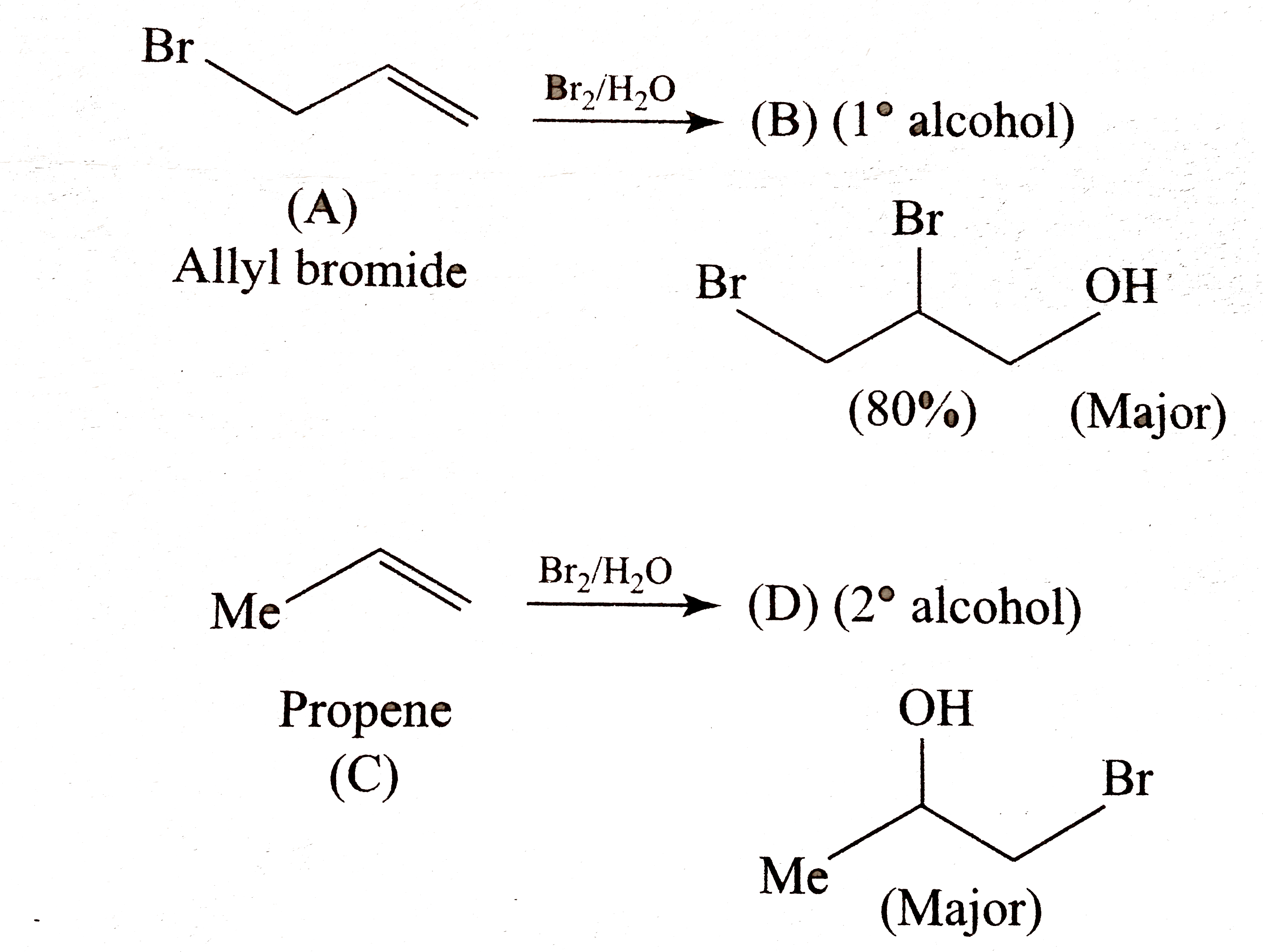
Why `(A)` mainy give `(B)(1^(@)` alcohol `)`, while `(C)` mainly gives `(D)^(2^(@)` alcohol `)` ?
View SolutionPropose structures for the hydrocarbon that gives the following products on oxidative cleavage by `KMnO_(4)//H^(o+)`.
`a.`
`b.`
View SolutionWrite the structural formulae for the compounds that yield the following products on reductive ozonolysis.
`a.` `2 mol ` butan`-2- `one
`b.` Methanol `+`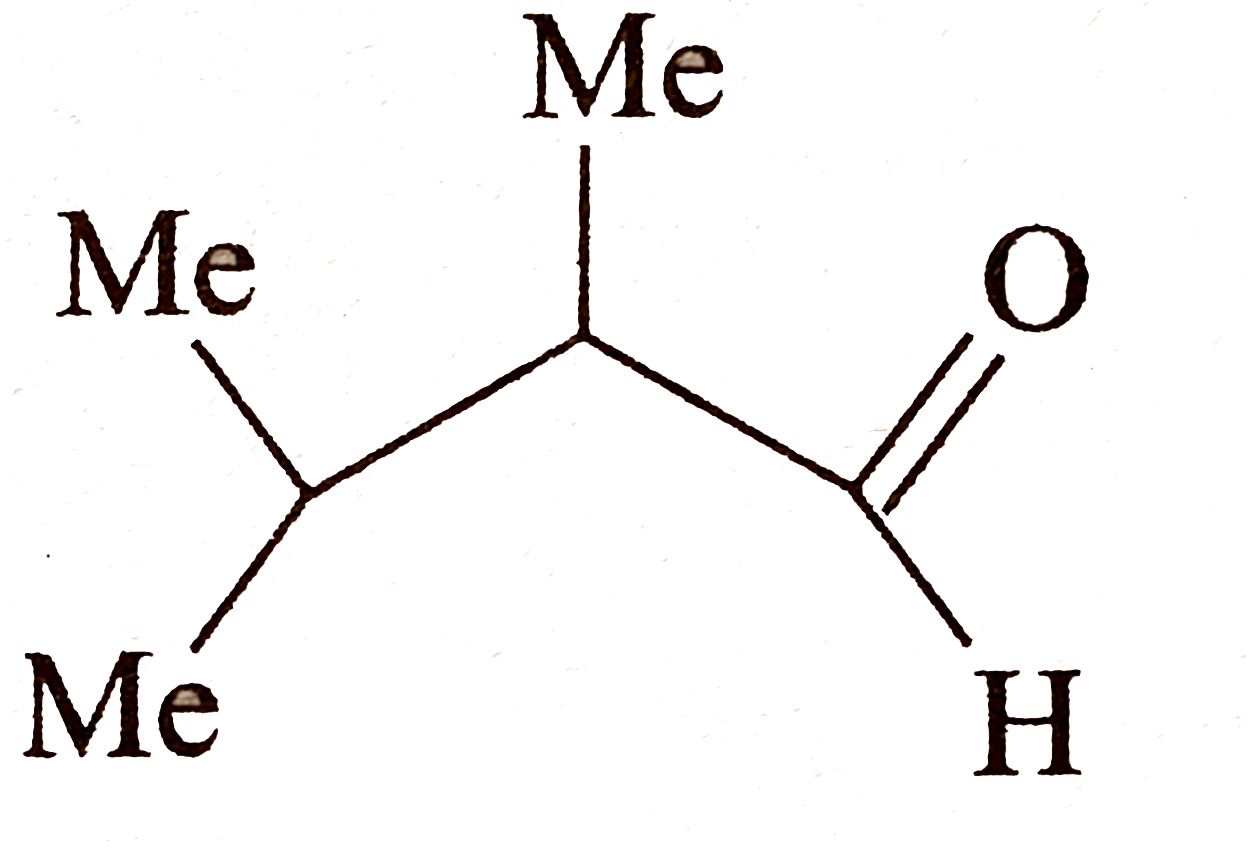
`c.` Pentan `-3-`one `+` Glyoxal `+` Propanal
`d.`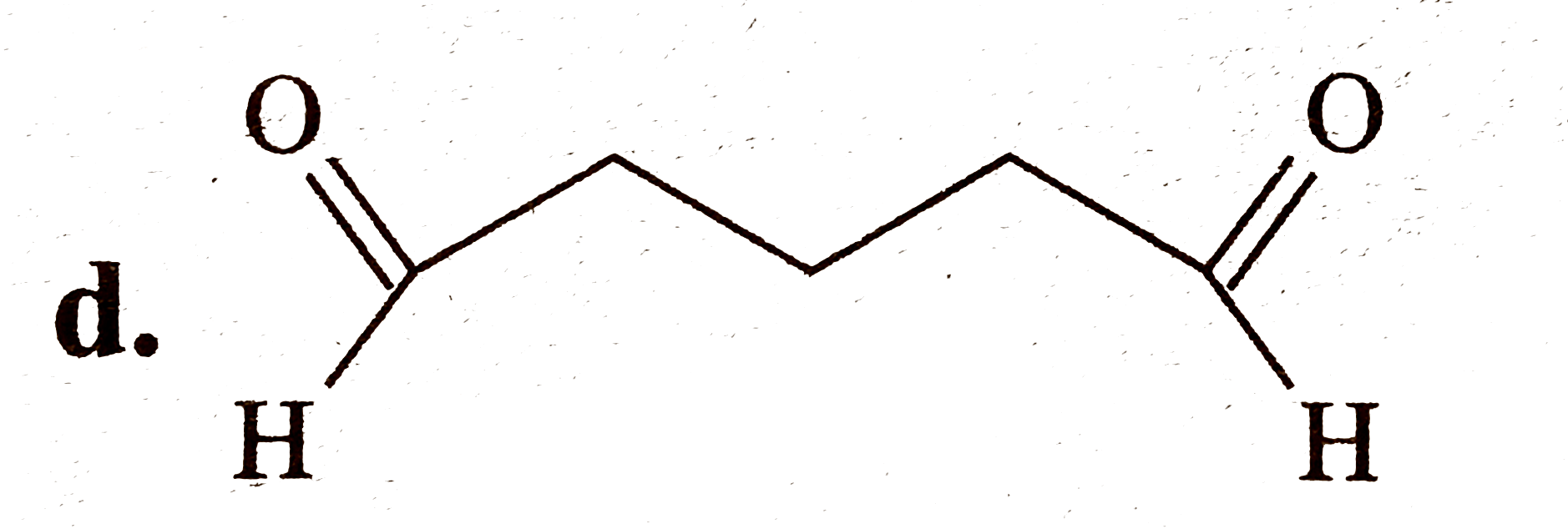
`e.` `2 mol`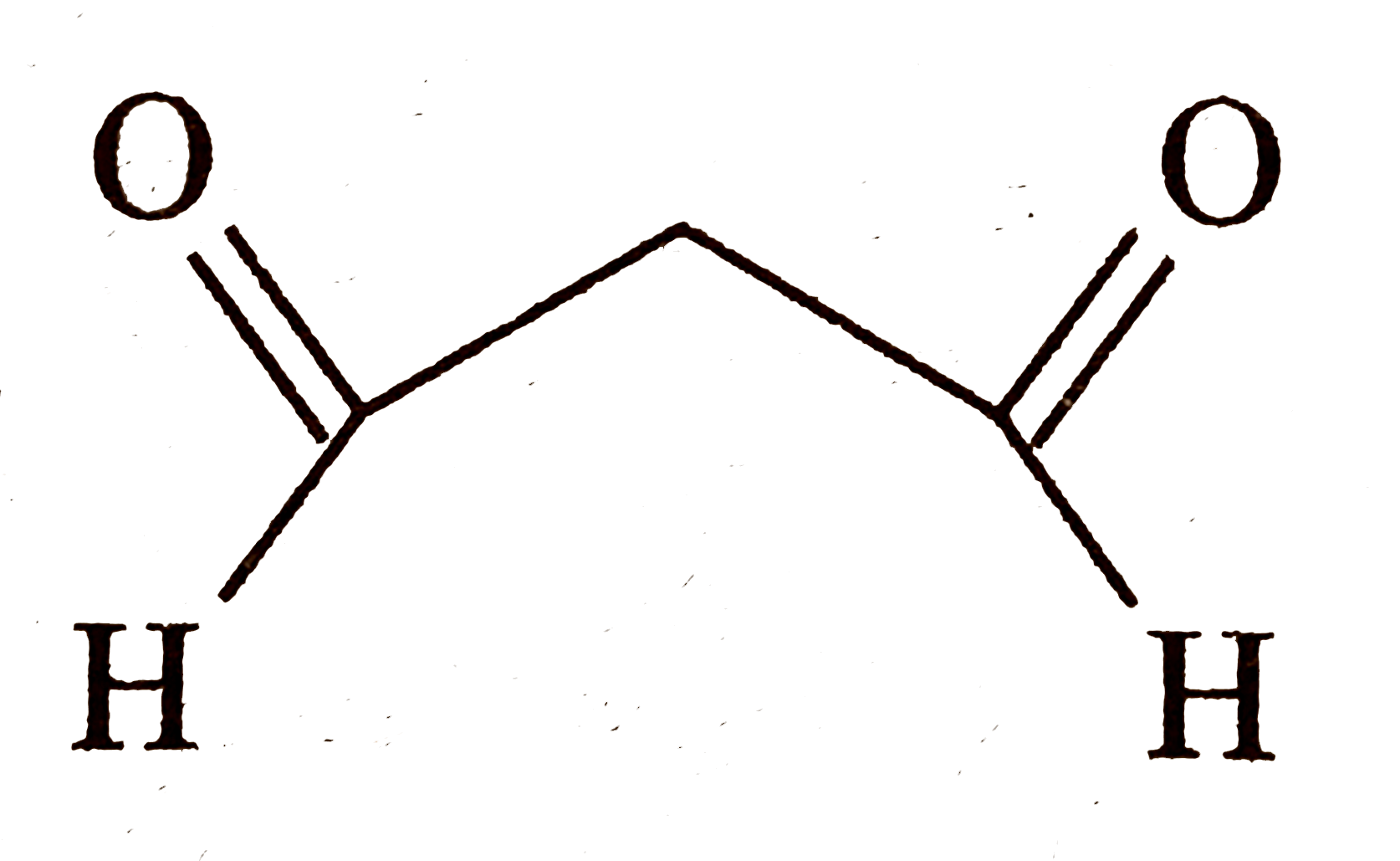
`f.` Pentan `-2-`one `+2 - `Methyl butanal
`g.`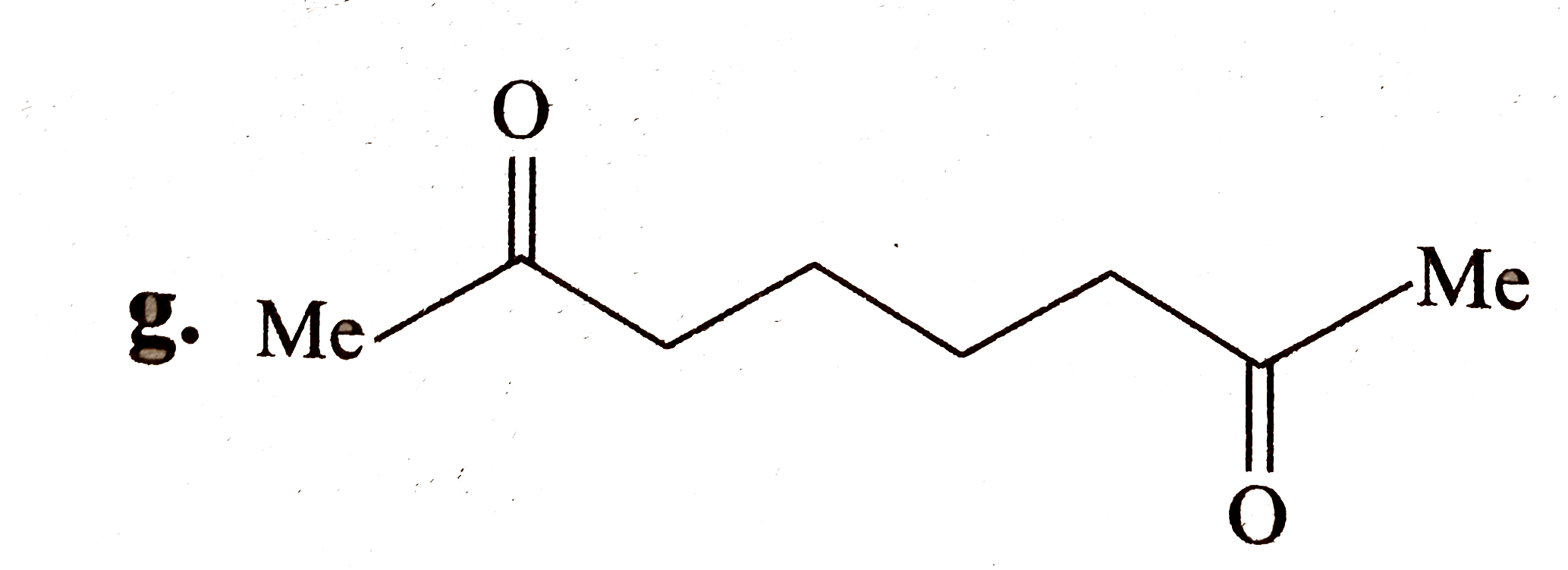
View SolutionGive the products formed on reductive ozonolysis with `LAH` and oxidative ozonolysis with `H_(2)O_(2)`, from the compounds in question.
View SolutionGive the products formed by the oxidation of hot `KMnO_(4)`.
`a.` `C_(4)H_(8)`
`b.` Cyclobutene ltbr. `c.` `1-` Methyl cyclobutene
`d.` `1,2-` Dimethyl cyclobutene
View SolutionDeduct the structural formul of a compound `(A) (C_(10)H_(16))` the gives `(B)` as the only compound on oxidation with acidic `KMnO_(4)`.
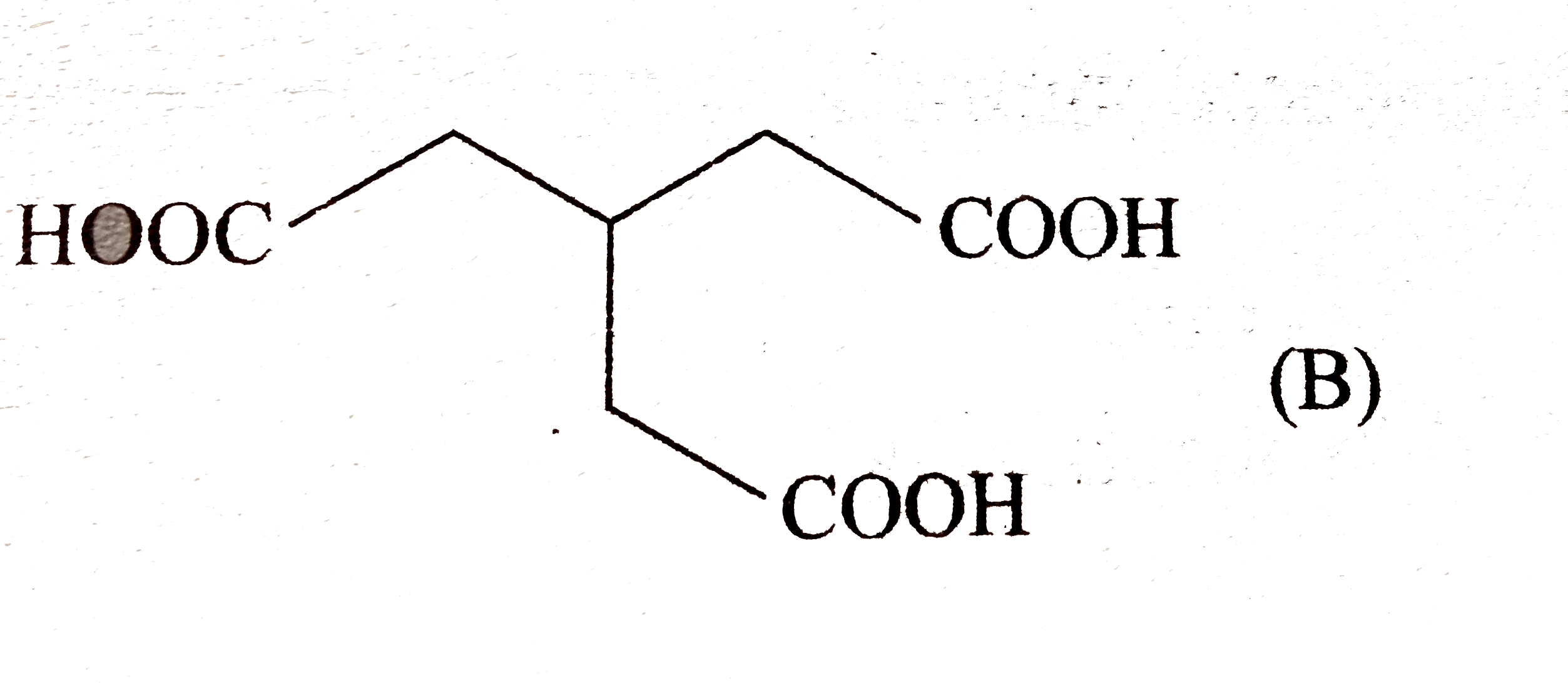
View SolutionWrite the resonance structures of the given compound.
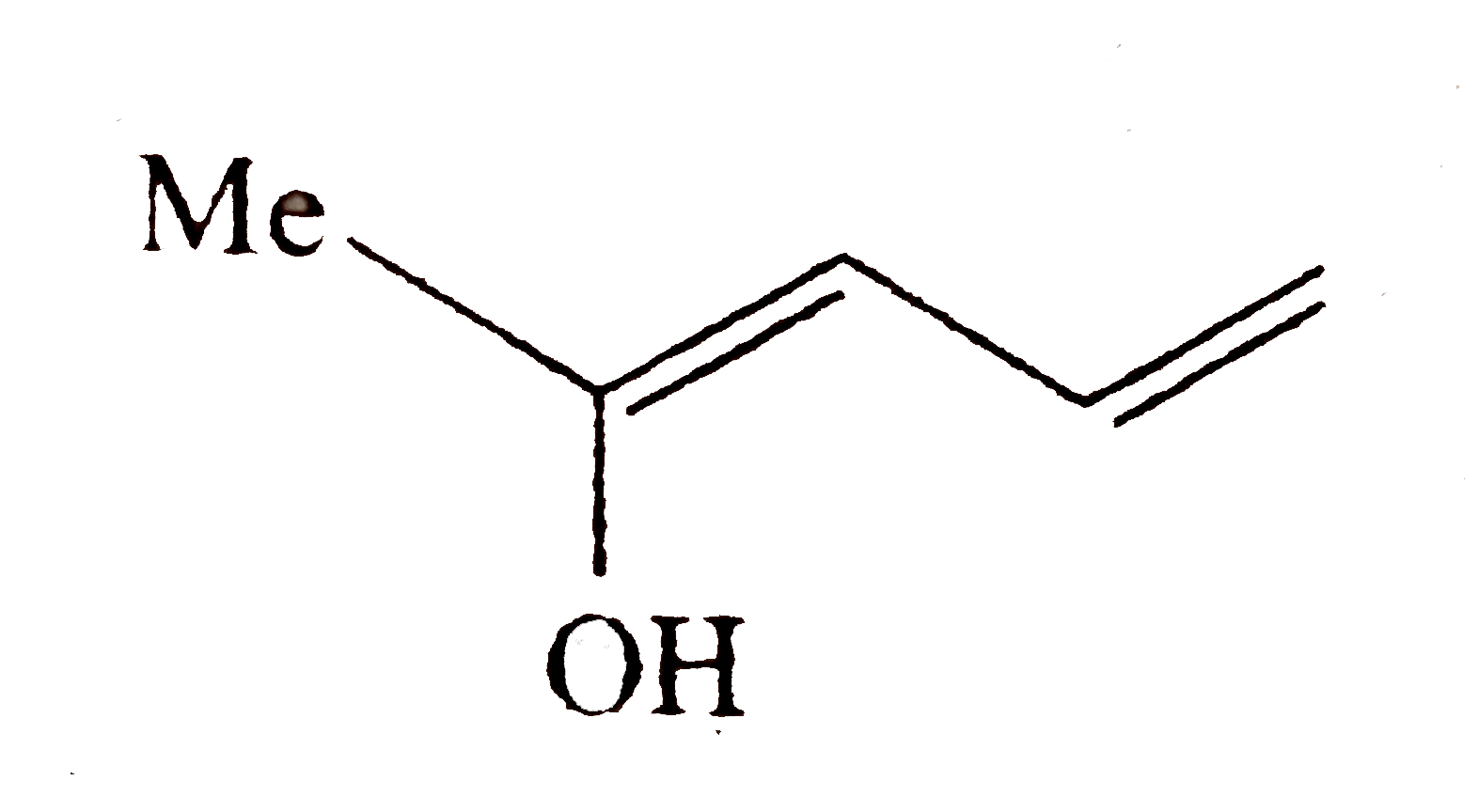
View SolutionExplain the following observation `:`
`a.` When pent `-1` en `-4-` yneistrested with `HBr` in molar proportion, the addition takes place on the double bond and not on the triple bond, thereby, yielding the porduct `,`
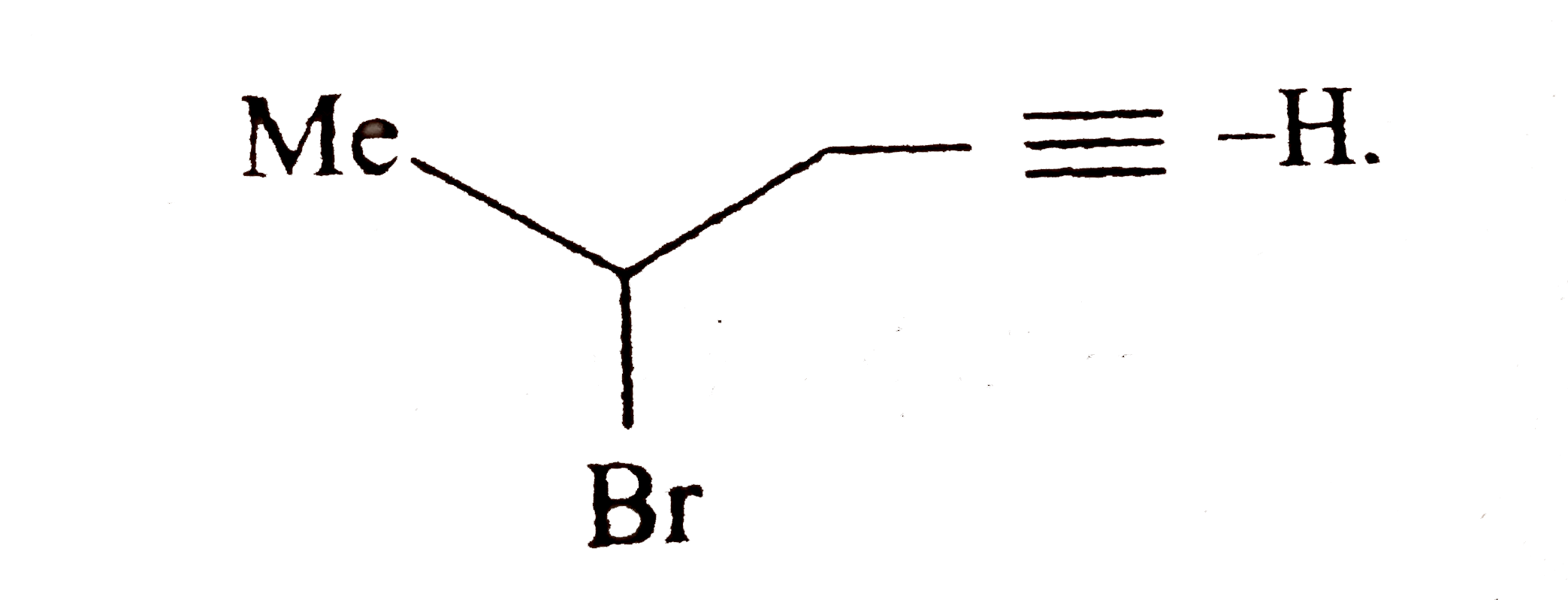
`b.` The `(C=-C)` bond length in propene is shorter than expected.
`c.` Whey benzyl carbocation is more stable than ethyl carbocation ?
`d.` Why does but `-2-` ene exhibit cis `-` trans isomerism but but `-2-` yne does not ?
`e.` `CI_(2)C=C C I_(2)` does not add `CI_(2)` under usual conditions but adds in the presence of `AICI_(3)`.
View SolutionGive the stereochemical forculae for `(A),(B)(C),` and `(D)` and also give the reactions involved.
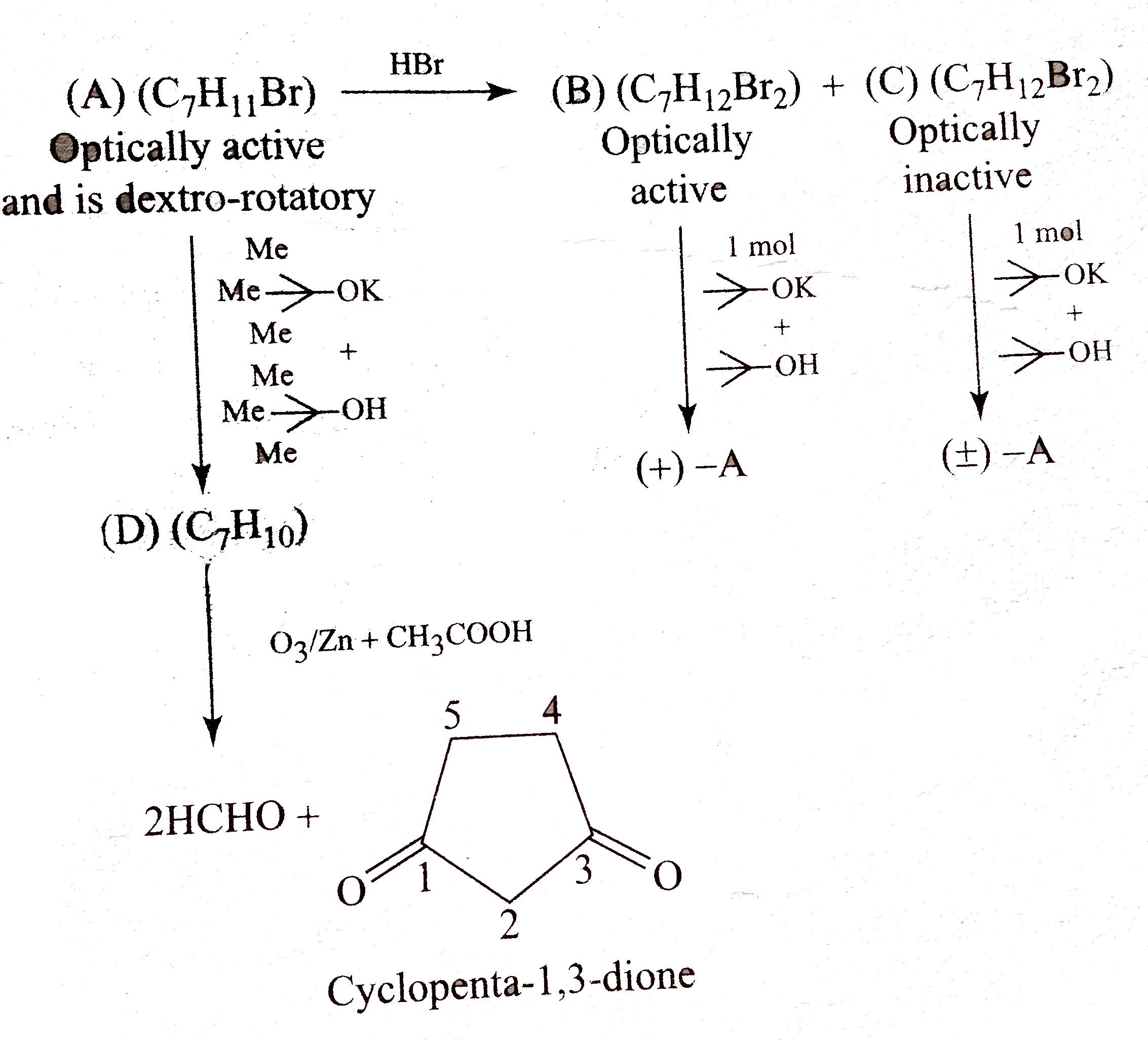
View SolutionIdentify `(A)` to `(E)`
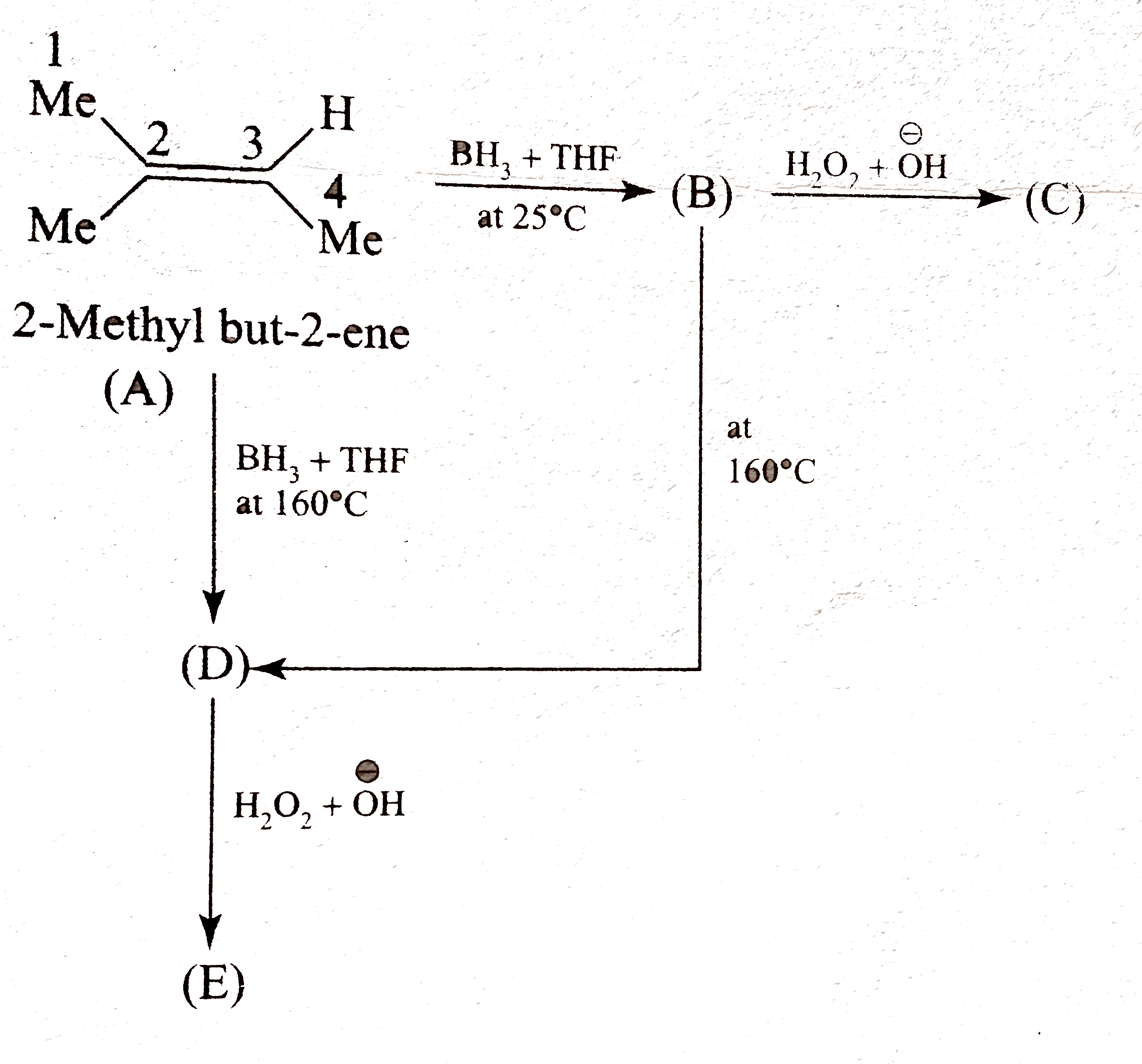
View SolutionIdentify `(A)` to `(E)`.

View SolutionA mixture of ethane `(C_(2)H_(6))` and ethene `(C_(2)H_(4))` occupies `40 L` at `1.00 atm` and at `400 K`. The mixture reacts completely with `130 g` of `O_(2)` to produce `CO_(2)` and `H_(2)O`. Assuming ideal gas behaviour, calculate the mole fractions of `C_(2)H_(4)` and `C_(2)H_(6)` in the mixture.
View SolutionComplete the following reactions.
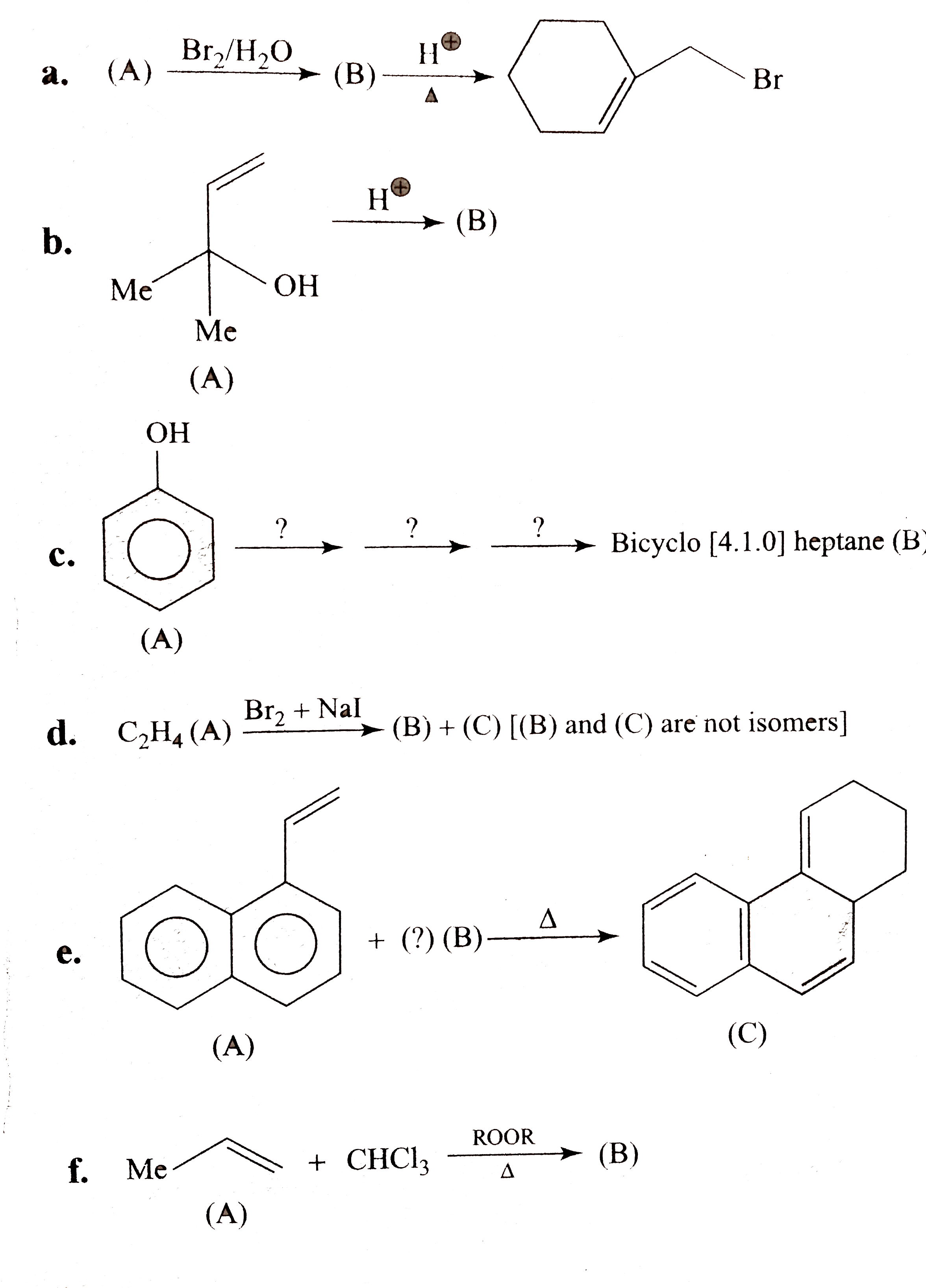
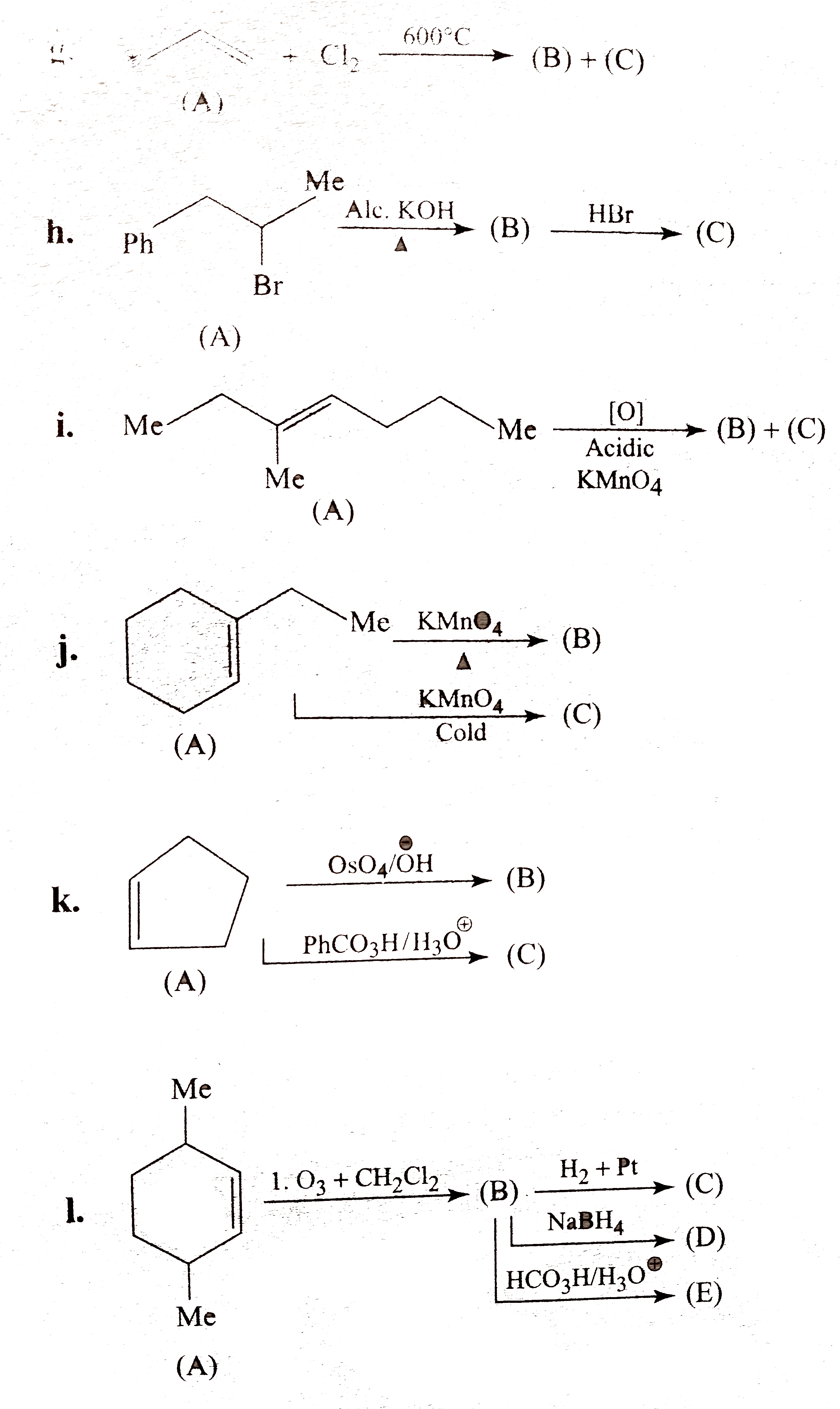
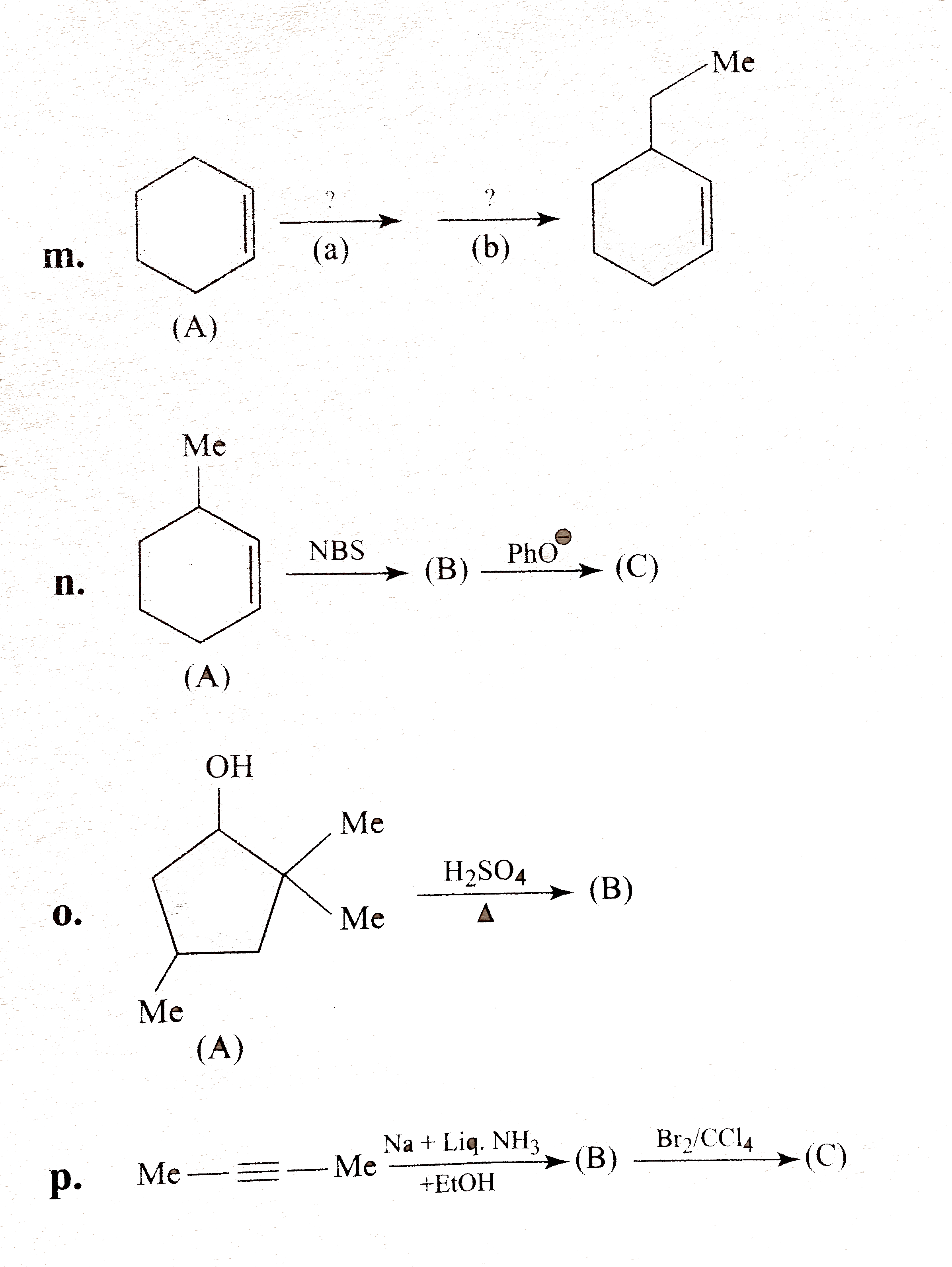

View SolutionGive the stereochemical structures of `B,C,` and `D`.
`a.` `2,overset("Erythro-")underset((A))(3-"dibromobut ane") overset ("Nal/Acetone") rarr (B)overset("Cold alk")underset (KMnO_(4))rarr(C)`
`b.` `overset("Threo-")underset((A))("2,3-diromobutane")overset("NaI/Acetone")rarr(B)overset("Cold alk.")underset(KMnO_(4))rarr`
c.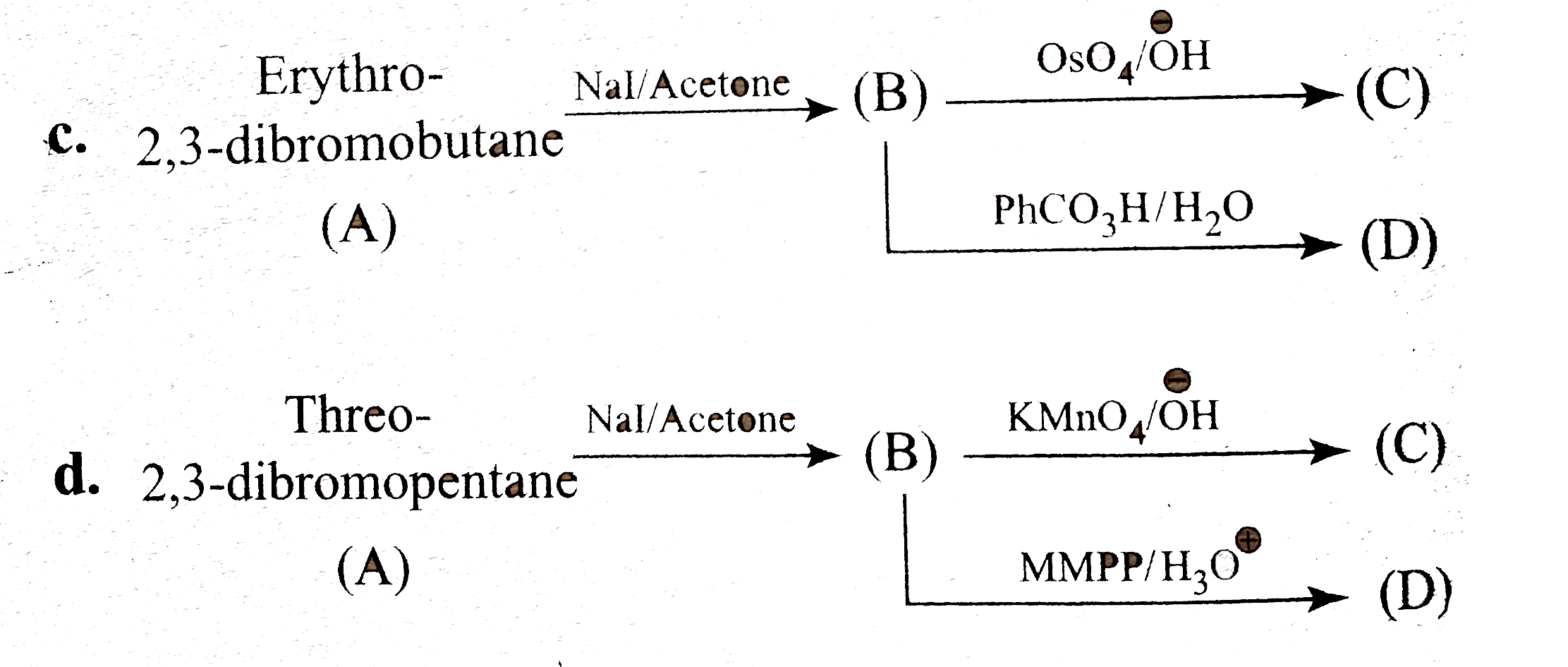
View SolutionGive the stereochemistry of the reation `(B)`.

View Solution
EXERCISES questions and complete solutions for chapter ALKENES AND ALKADIENES of CENGAGE CHEMISTRY (HINGLISH) of Class 11